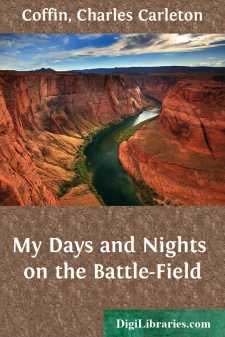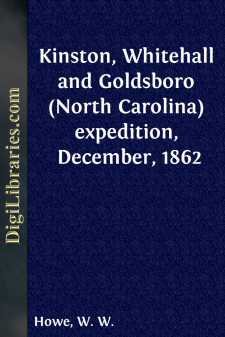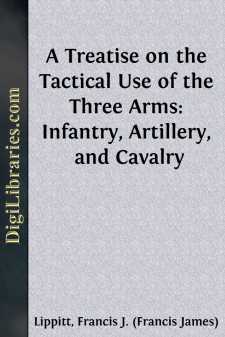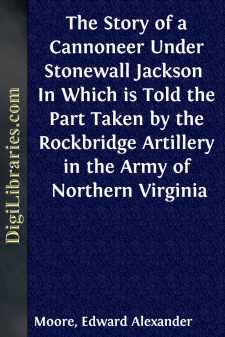Categories
- Antiques & Collectibles 13
- Architecture 36
- Art 48
- Bibles 22
- Biography & Autobiography 813
- Body, Mind & Spirit 142
- Business & Economics 28
- Children's Books 17
- Children's Fiction 14
- Computers 4
- Cooking 94
- Crafts & Hobbies 4
- Drama 346
- Education 46
- Family & Relationships 57
- Fiction 11829
- Games 19
- Gardening 17
- Health & Fitness 34
- History 1377
- House & Home 1
- Humor 147
- Juvenile Fiction 1873
- Juvenile Nonfiction 202
- Language Arts & Disciplines 88
- Law 16
- Literary Collections 686
- Literary Criticism 179
- Mathematics 13
- Medical 41
- Music 40
- Nature 179
- Non-Classifiable 1768
- Performing Arts 7
- Periodicals 1453
- Philosophy 64
- Photography 2
- Poetry 896
- Political Science 203
- Psychology 42
- Reference 154
- Religion 513
- Science 126
- Self-Help 84
- Social Science 81
- Sports & Recreation 34
- Study Aids 3
- Technology & Engineering 59
- Transportation 23
- Travel 463
- True Crime 29
Sort by:
CHAPTER I. HOW THE REBELLION CAME ABOUT. Many of you, my young readers, have seen the springs which form the trickling rivulets upon the hillsides. How small they are. You can almost drink them dry. But in the valley the silver threads become a brook, which widens to a river rolling to the far-off ocean. So is it with the ever-flowing stream of time. The things which were of small account a hundred...
more...
The Colonel was the idol of his bragging old regiment and of the bragging brigade which for the last six months he had commanded. He was the idol, not because he was good and gracious, not because he spared his soldiers or treated them as fellow-citizens, but because he had led them to victory and made them famous. If a man will win battles and give his brigade a right to brag loudly of its doings, he...
more...
by:
W. W. Howe
Major General J. G. Foster commenced a movement of his army from New Berne this morning. At 3 p. m. we came upon the enemy's pickets (near our present camping ground), when three prisoners were taken by the advance guard of the Third New York Cavalry. In attempting to press forward we found the road densely blockaded by felled trees; this blockade extended for several hundred yards, being situated...
more...
Infantry attacks with its fire, or with the bayonet. Which of these is the more effective? 1. The object of an attack is to destroy or capture the hostile force, or, at least, to drive it from the field. Capturing the enemy, or driving him from the field, cannot usually be effected by merely firing upon him. True, a mere fire at a distance may finally destroy him. But an insuperable objection to this...
more...
A WOMAN IN BROWN A tall, well-favoured youth, coming from the farther South, boarded the train for Richmond one raw, gusty morning. He carried his left arm stiffly, his face was thin and brown, and his dingy uniform had holes in it, some made by bullets; but his air and manner were happy, as if, escaped from danger and hardships, he rode on his way to pleasure and ease. He sat for a time gazing out of...
more...
PREFACE The writer of this book was a volunteer officer in the Union army throughout the war of the Great Rebellion, and his service was in the field. The book, having been written while the author was engaged in a somewhat active professional life, lacks that literary finish which results from much pruning and painstaking. He, however, offers no excuse for writing it, nor for its completion; he has...
more...
WASHINGTON COLLEGE—LEXINGTON—VIRGINIA MILITARY INSTITUTE At the age of eighteen I was a member of the Junior Class at Washington College at Lexington, Virginia, during the session of 1860-61, and with the rest of the students was more interested in the foreshadowings of that ominous period than in the teachings of the professors. Among our number there were a few from the States farther south who...
more...
by:
Edward Robins
CHAPTER I HAZARDOUS PLANS The lightning flashes, the mutterings of thunder, like the low growls of some angry animal, and the shrieking of the wind through swaying branches, gave a weird, uncanny effect to a scene which was being enacted, on a certain April night of the year 1862, in a secluded piece of woodland a mile or more east of the village of Shelbyville, Tennessee. In the centre of a small...
more...
PREFACE. In deference to the judgment of two or three literary friends, I have entitled this, my first attempt at authorship, "The Narrative of a Blockade-runner." They do not agree with Shakspeare that "a rose by any other name would smell as sweet," to the reading public; nor that it is always advisable to call a thing by its proper name. It will be seen, however, by any reader who...
more...











